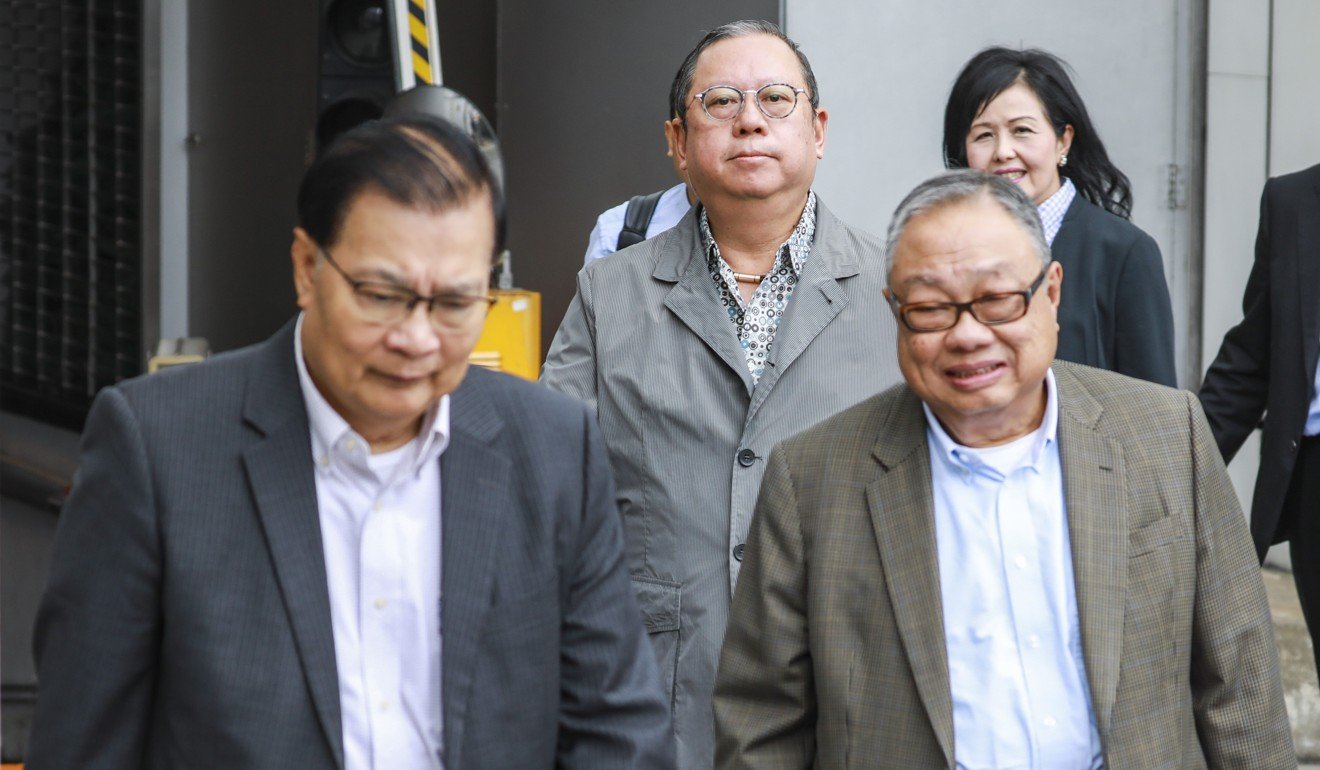
Beijing tells Hong Kong protesters not to become pawns in US-China trade war as it blames foreign powers for inflaming tensions in city over extradition bill
- Liaison office meets 200 Hong Kong delegates and asks them to support Chief Executive Carrie Lam
- Officials accuse countries of interfering and complicating the situation
Beijing’s liaison office in Hong Kong has called on residents not to be used as pawns by foreign forces amid the US-China trade war, and said more than 60 statements issued by overseas powers had fuelled tension over the controversial extradition bill.
More than 200 Hong Kong delegates to the National People's Congress (NPC) and the Chinese People’s Political Consultative Conference (CPPCC) met officials from the liaison office on Sunday, when they were also asked to support the Hong Kong government in riding out the storm.
The meeting was held hours before people took to the streets for a second consecutive Sunday, despite Chief Executive Carrie Lam Cheng Yuet-ngor announcing the suspension of the legislation the day before.
The bill, if passed, would allow the transfer of fugitives to jurisdictions Hong Kong lacks an extradition agreement with, including mainland China.

“The liaison office officials recognised the Hong Kong government’s intention to pass the extradition bill to plug legal loopholes. But it’s a shame that … many foreign forces keep interfering and smearing the bill,” said Tam Yiu-chung, the city’s only representative to the NPC’s Standing Committee.
He and the other delegates met liaison office director Wang Zhimin and other duty chiefs for about an hour.
Sea of black in Hong Kong: Will march against suspended extradition bill get another record turnout?
Tam quoted officials as saying foreign powers had issued at least 67 statements to “interfere” with the row over the bill, complicating the situation in Hong Kong.
“It’s a pity that some Hong Kong people and organisations have been used as pawns, especially in the US-China trade war,” he said, adding that he hoped the city could go back to having rational and peaceful discussions about the proposals.

He said the delegates were also urged in the meeting to support Lam and the Hong Kong government, and given the printout of the statements issued by the liaison office, Hong Kong and Macau Affairs Office, the foreign ministry, and the Office of the Commissioner of the Foreign Ministry in Hong Kong.
“Respect, understanding and support are the keywords in all four statements. The liaison office thinks that every word reflected the central government’s respect and trust for the chief executive,” he said, noting that it was rare for all the four departments to release a statement at the same time.
Will Beijing still support Carrie Lam after Hong Kong extradition bill debacle?
On Wednesday, there were clashes between police and protesters who wanted to stop the government from forcing the bill through the legislature. Officers fired tear gas, rubber bullets and beanbag rounds to clear demonstrators occupying roads near the Legislative Council.
Tam said the liaison office spoke highly of the resolve of the Hong Kong police to keep law and order.
“The officials mentioned how police kept working dozens of hours without rest to safeguard the city,” he said.
Veteran businessman and CPPCC delegate Chan Wing-kee said he was also concerned some protesters were being used.
“What I fear most is that some people want to incite clashes between police and the people,” he said.
Also speaking after the meeting with the liaison office, Timothy Kwai Ting-kong, a member of the Zhejiang committee of the CPPCC, said he supported and respected Lam’s decision to suspend the bill, saying it would be beneficial to Hong Kong and governance.
Kwai also questioned the motives of Western countries such as the United States and Britain, which had spoken publicly on the extradition bill row. “When did the US begin to care about Hong Kong’s business community and Hongkongers?” he asked.
Kwai added the disclosure that Germany had granted two Hong Kong fugitives, localists Ray Wong Toi-yeung and Alan Li Tung-sing, refugee status in May was an apparent move to use them as pawns.
Meanwhile, the foreign ministry commissioner’s office issued a rare statement on Sunday to protest against some groundless foreign media reports relating to the extradition bill. It said the bill was intended to plug legal loopholes and perfect the rule of law in Hong Kong.
“It is necessary, appropriate and reasonable,” it said.
But it also said it supported, respected and understood Lam’s decision to suspend the bill’s legislative exercise and would continue to support her governance in Hong Kong.
The office did not say if it was responding to a foreign media report which quoted a source with ties to China’s leadership as saying the Hong Kong government had handled the extradition bill saga badly and Beijing now had severe doubts about Lam’s capabilities.
